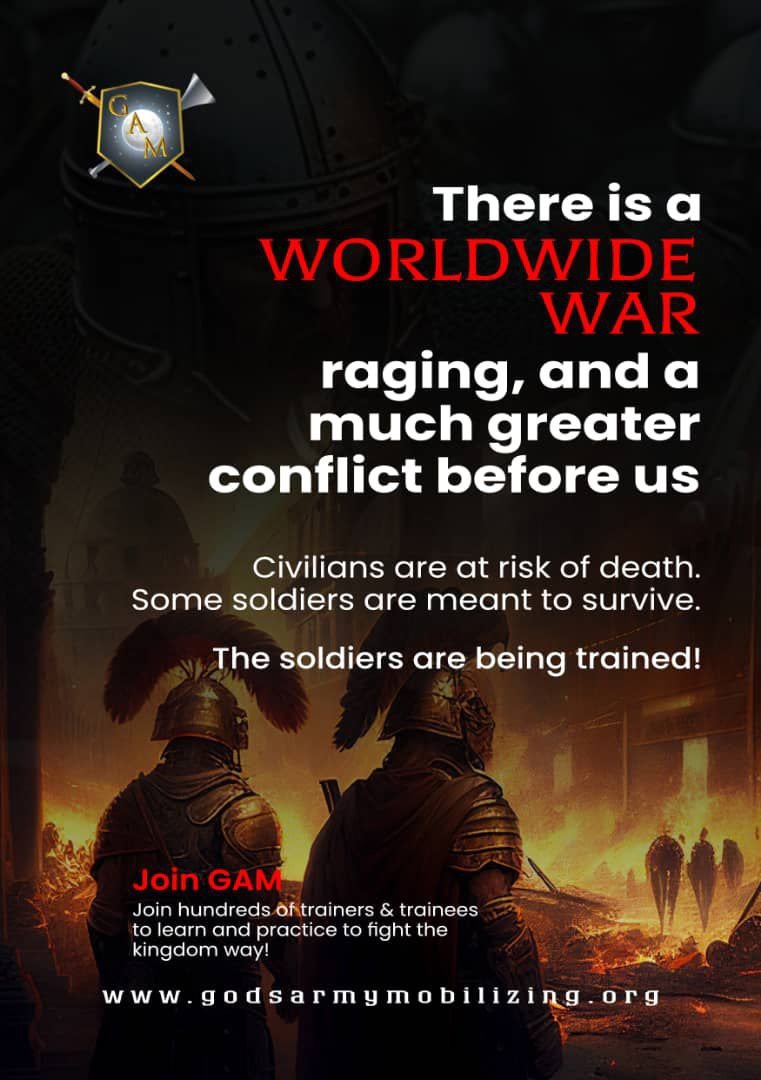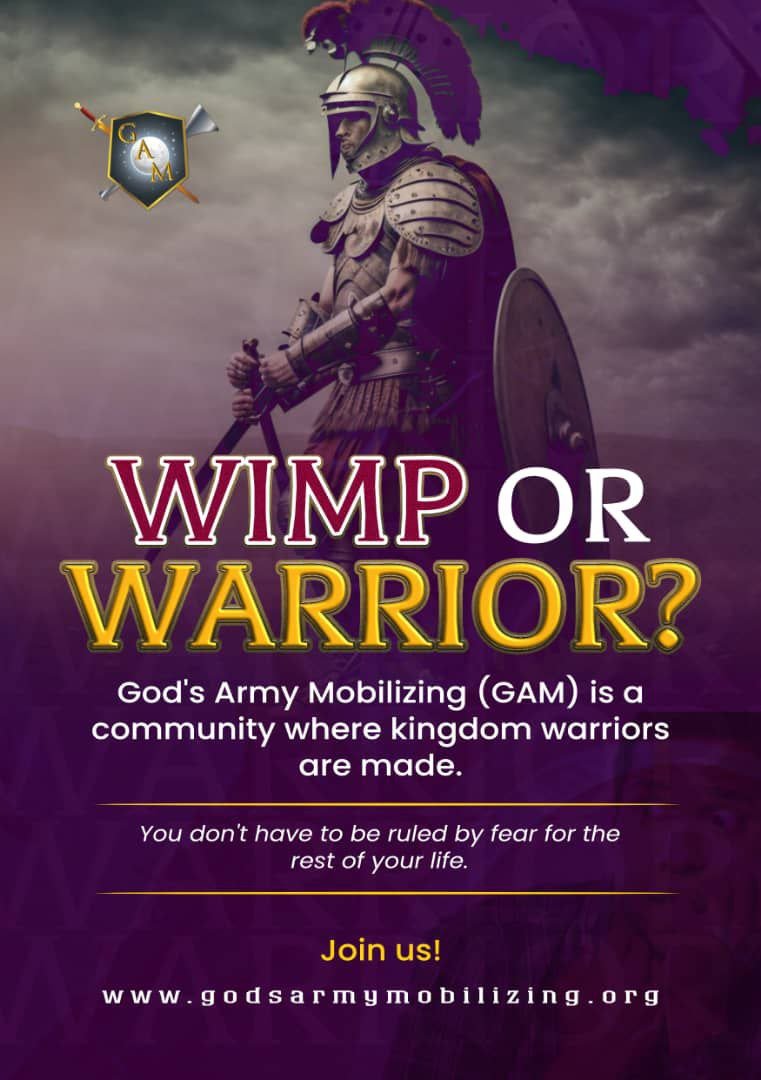
This series of classes is called the Apostolic Christological Foundation because it contains the foundational teachings about Christ, as listed In Hebrews 6:1-2.
“If the foundations (shâthâh) are destroyed, what can the righteous do?” (Psalm 11:3)
The Hebrew word shâthâh is translated, ‘foundation, support, stay, (figuratively), purpose.’ Soldiers who do not have a solid foundation in the knowledge of the Lord will be ineffective and lose battles. This foundation is established in the word of God.
“For though by this time you ought to be teachers, you need someone to teach you again the first principles (stoicheion) of the oracles of God. And you have come to need milk, and not solid food. For everyone who partakes only of milk is unskilled in the Word of Righteousness, for he is a babe. But solid food belongs to those who are of full age, that is, those who by reason of use have their senses exercised to discern both good and evil.” (Hebrews 5:12-14)
The Greek word stoicheion refers to the ‘letters of the alphabet as the elements of speech,’ and generally, ‘the elements, rudiments, primary and fundamental principles of any art, science, or discipline.’ The topics listed in Hebrews 6:1-2 may therefore be referred to as the ‘a-b-c’ of Christianity. Soldiers cannot be babies; they should be mature and skilled in the word of righteousness!
“Therefore leaving the discussion (logos = ‘doctrine’) of the elementary principles (arche = ‘origin’) of Christ, let us go on unto perfection (teleiotes = ‘maturity’); not laying again the foundation (themelios = ‘foundation’) of repentance from dead works, and of faith toward God, of the doctrine of baptisms, and of laying on of hands, and of resurrection of the dead, and of eternal judgment. And this will we do, if God permits.” (Hebrews 6:1-3).

Under this heading, we have content available for free in audio, video, and text formats.
Note: The downloadable text file attached below is a simplified and summarized version of the key elements of these classes. More detailed versions of these teachings are available in the video/audio links attached from God’s Army Mobilizing Kingdom Academy School of Ministry (GAMKA-SOM).
Whatever format you choose, ensure that you go through these classes in their proper order, till the end!
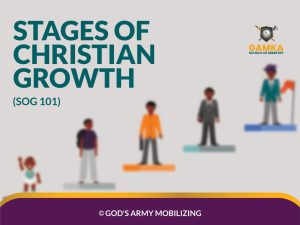
Learn about the steps on the journey to Christian maturity; from believer, to disciple, to servant, then friend, and finally… a son of God (Rom 8:19). Learn the difference between a disciple (soldier), and a believer (civilian), and discover what it truly means to be a son of God.
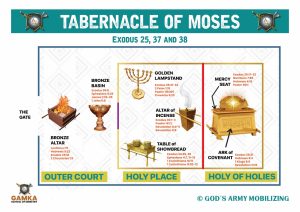
The Tabernacle of Moses outlines the believer’s progression in the knowledge of the Lord in the context of God’s three-step salvation process: from the Outer Court (justification of the spirit), the Holy Place (sanctification of the soul), and the Holy of Holies (glorification of the body). Unearth the mysteries of the Kingdom, veiled in the shadow of the Law.
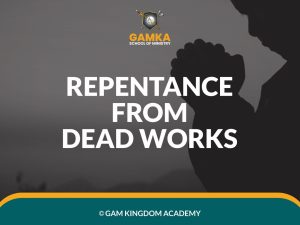
Discover the true meaning of ‘repentance’, why we should repent, who needs to repent, the three phases of salvation, the meaning of ‘dead works’, and much more.

Faith is one of the most commonly misunderstood subjects in Christendom. Find out what faith really is – and what it isn’t. Draw wisdom from the scriptures on the reason for tests of faith, and learn about the purpose of our faith.
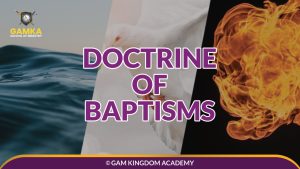
In Hebrews 6:2, this class is described as the doctrine of ‘baptisms’ – not the doctrine of ‘baptism’. Why so? There’s more than one sort of baptism. The Scriptures speak of different types of baptism – of water, the Holy Spirit, and even fire! Learn about these baptisms, and what they signify.
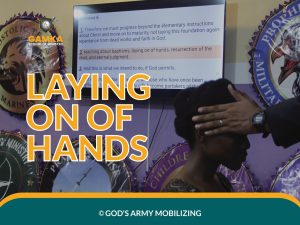
Why do ministers lay hands on people and pray? Why does this practice exist in Christianity, and what is it for? What is its purpose? Good (or bad) spiritual content can be transferred through laying on of hands, and the ‘hands’ don’t need to be physical to get to you! Discover what music, dedicated items, books, clothes, and other objects can impart into your life – and how to deal with it.
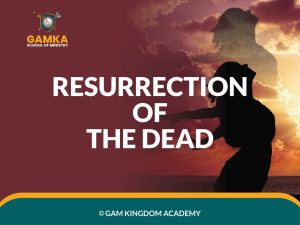
Barely understood and largely ignored by the majority of the church today, the resurrection of the dead is the anchor of our hope in Christ. Discover the order in which the dead will be raised, the benefits of the ‘better’ resurrection, and how to qualify.
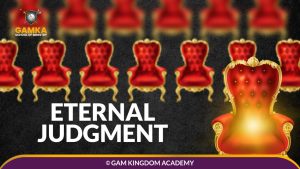
We all will appear before the judgment seat of Christ to receive our just rewards (2 Cor 5:10). What do the words ‘eternal’ and ‘judgment’ mean in the original languages of the Scriptures? What principles does God judge by, and how do we prepare for the day of judgment? Find out here!




